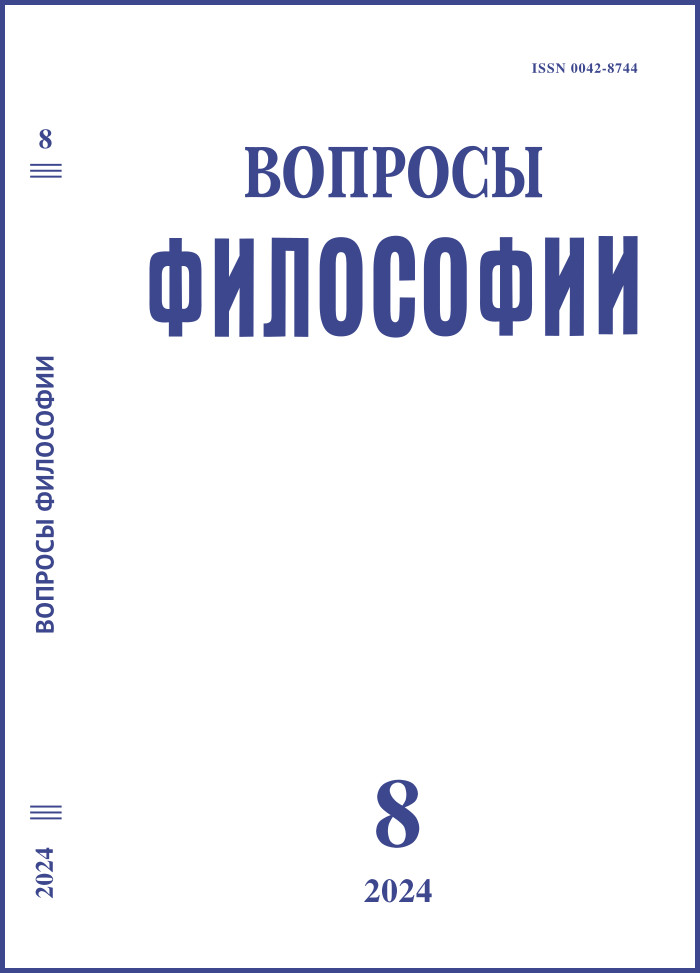Organic Philosophy in the Criticism of A.A. Grigoriev, Philosophy of N.N. Strakhov and Novels of F.M. Dostoevsky
DOI:
https://doi.org/10.21146/0042-8744-2024-8-123-134Keywords:
organic philosophy, A.A. Grigoriev, F.M. Dostoevsky, N.N. Strakhov, senior slavophiles, intuitionism, life-knowledgeAbstract
The article proposes a hypothesis that the “age-old question” about the meaning and purpose of human life, posed by F.M. Dostoevsky in his youth in a letter to his brother Mikhail, as a program for his entire future life, was solved in the form of a “soil-based” concept, the basis of which was the “organic criticism” of A.A. Grigoriev and “organic philosophy” of N.N. Strakhov. This ideological complex was formed under the influence of a number of European philosophers, of which the most important were the works of T. Carlyle, as well as the “senior Slavophiles” A.S. Khomyakov and I.V. Kireyevsky. The literary and aesthetic aspect of the concept was realized in A.A. Grigoriev’s “organic criticism”, the socio-cultural aspect became the basis of the ideological platform of the magazines “Time” and “Epoch” (1861–1865), its formal logical justification was carried out in the works of N.N. Strakhov. Through the efforts of a circle of thinkers grouped around the editorial offices of the magazines “Time” and “Epoch”, long before N.O. Lossky and A. Bergson, the basic points of philosophical intuitionism were developed and analyzed on a variety of thematic
material. The article puts forward a version that the ideological basis of the “big” novels by F.M. Dostoevsky (1866–1880) – “Crime and Punishment” (1866), “Idiot” (1868), “Demons” (1872), “Teenager” (1875) and “Brothers Karamazov” (1880) is “organic philosophy”, the main elements of which are reflected at all levels of the artistic structure of the writer’s work

